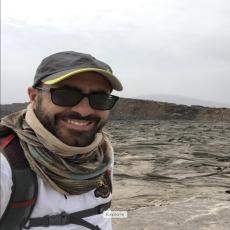Objectives
Developing competences and expected learning outcomes
Educational goals: The course aims to illustrate the methodologies, technologies and the data can be acquired and the studies that are commonly performed in order to understand the phenomena that govern the generation, migration, accumulation of hydrocarbons and finally forecasting resources. The applications cover the entire spectrum of oil exploration from the preliminary studies until the detailed studies carried out in mature areas from the production point of view.
Learning outcomes: Attending students will gain knowledge of the processes and oil exploration techniques that go from the acquisition of the data, through their interpretation, to the modelling of a petroleum system.
Channels
NESSUNA CANALIZZAZIONE
 FABIO TRIPPETTA Teacher profile
FABIO TRIPPETTA Teacher profile
Programme
Introduction
Definition of hydrocarbons and petroleum systems
Definition of the main components of a petroleum system
Origin and hydrocarbon generation
Definition of a source rock and its geochemical characterization, types of kerogen and definition of API degrees.
Definition of Liquids and Gaseous Hydrocarbons.
Hints on the geochemical characterization of hydrocarbons.
Definition of the geochemical correlations oil-oil and oil-source rock.
Basics of hydrocarbons geochemistry.
Geometry of the Petroleum System
Velocity measurements (Laboratory and borehole measurements , advantages and disadvantages )
Methods of velocity measurements and scale effects
Comparison of laboratory measurements and well data
Hints on depth conversion
Construction of a structural map from seismic data
Representation of faults and structures in the structural maps
Contouring , methods and applications
Definition and origin of the different types of traps
Concept of decompaction.
Reconstruction of the burial history of a basin.
Definition and compilation methods of events chart
Petrophysical characterization of a petroleum system
Methods for borehole porosity measurements
Methods for laboratory porosity measurements
Porosity / depth relations and models
Methods for borehole permeability measurements
Methods for laboratory permeability measurements
Quick look to FMI analysis ( and relations with Brace , 1980)
Temperature of the PS
Heat flow , geothermal gradient and driving factors
Methods and techniques for the measurement of temperature in the well.
Case history of the reconstruction of the geothermal gradient .
Geochemistry of the PS
Analysis for the characterization of the source rock .
Rock Eval pyrolysis, vitrinite reflectance and other techniques for the definition of the maturity.
Maturity profiles, Arrhenius equation
Geochemical and geological aspects of primary migration.
Fluids movements within the PS:
Overpressure in wells, causes and processes that generate overpressure
Methods of overpressure measurement in well
The role of faults in the movement of fluids within the reservoir
Primary, secondary and tertiary migration, definitions and methods of analysis.
Secondary migration techniques for the identification of the hydrocarbons paths
Adopted texts
Power Point files of the teacher.
Prerequisites
It is needed to know the basic concepts of stratigraphy, skills in reading the structural-geological maps and together with the ability to draw and interpret geological profiles. Some basic knowledge of chemistry, physics mathematics, petrophysics and hydrogeology are also desirable.
Exam modes
1. Short exercise on the topics covered during the course such as: depth conversion, migration, burial history, estimation of reserves, reading and interpretation of a map of events, etc.
2. Illustration of a topic among those covered during the course through discussion of an inherent scientific paper.
3. Questions about course topics.
The average duration of the whole exam is about 25-30 minutes.
The final score reflects the student's analytical, verbal, quantitative and interpretation skills, evaluating aspects such as observation skills, logical reasoning, technical language properties, critical analysis of results and resolution of problems (often practical) in petroleum geology.
- Academic year: 2020/2021
- Curriculum: Curriculum unico
- Year: Second year
- Semester: First semester
- SSD: GEO/03
- CFU: 6
- Attività formative affini ed integrative
- Ambito disciplinare: Attività formative affini o integrative
- Lecture (Hours): 40
- Other (Hours): 20
- CFU: 6
- SSD: GEO/03
